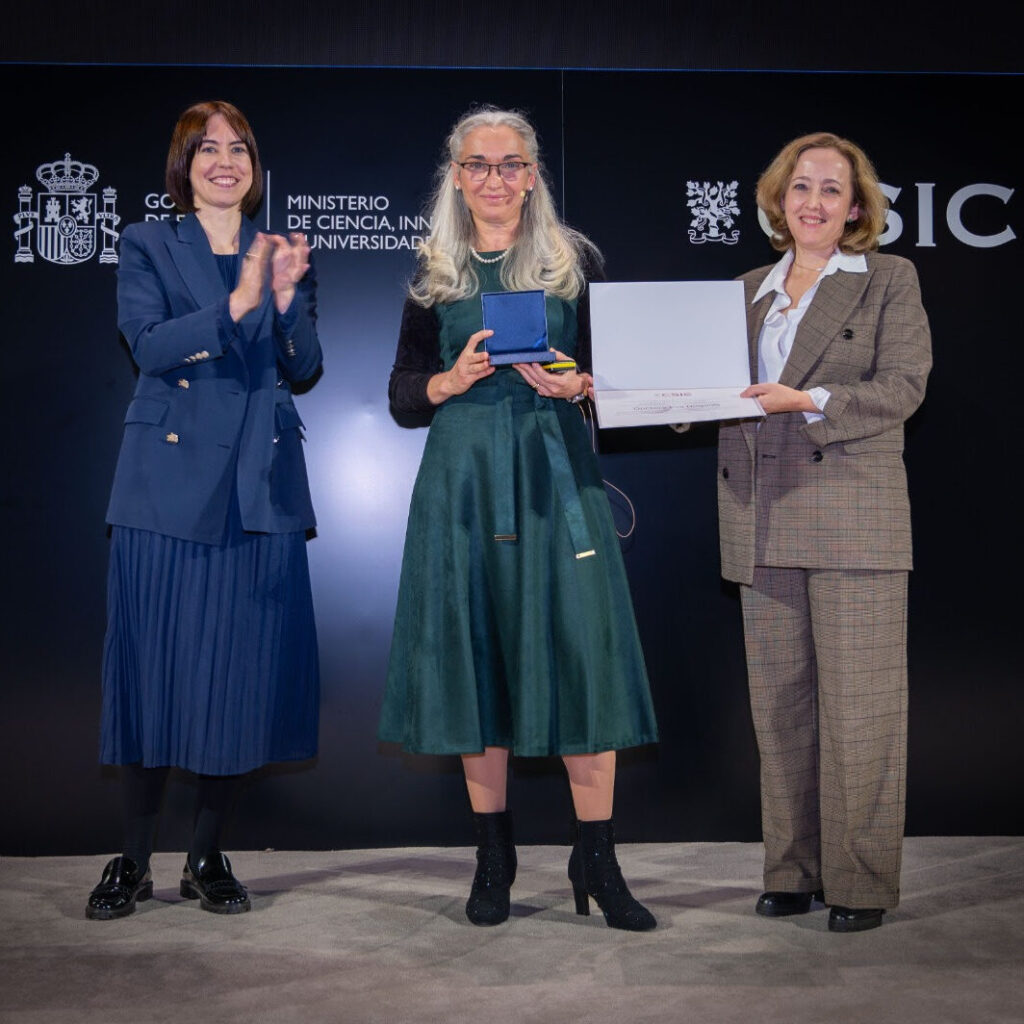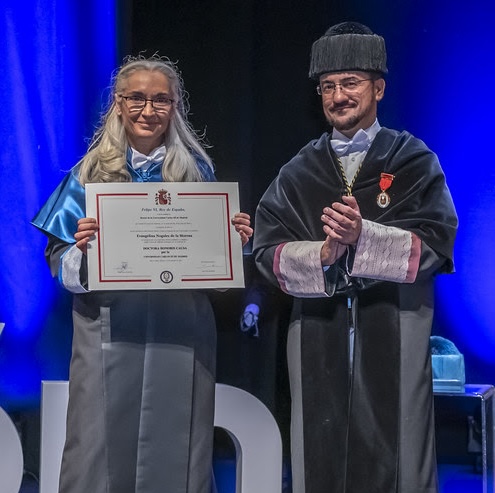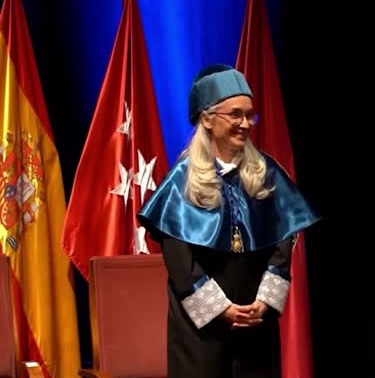In December, Eva Nogales, senior faculty scientist Molecular Biophysics and Integrated Bioimaging (MBIB) Division, traveled to her native Spain where she was honored for her work in the field of visualization of macromolecular function.

The Spanish High Council for Scientific Research awarded Nogales the Extraordinary Medal for Scientific Merit at a ceremony held in Madrid during the celebration of the Council’s 85th anniversary. The event was attended by the Minister of Science, Innovation and Universities, Diana Morant, the Secretary of State for Science, Innovation and Universities, Juan Cruz Cigudosa, the Secretary General of Research, Eva Ortega Paíno, and the president of the Council, Eloísa del Pino.
“It is a real honor to receive this medal,” said Nogales. “As a Spaniard, I feel especially grateful and excited by this recognition by the highest Spanish scientific body.”

In a separate ceremony, Nogales received an honorary doctorate from Carlos III University in Madrid. The event was attended by the Minister of Health, Mónica García, the Secretary of State for Education, Abelardo de la Rosa, and the Deputy Minister for Universities, Research and Science, Ana Ramírez de Molina, among other dignitaries.
In her remarks, she reflected that her career “exemplifies the social lift that public universities represent” and noted that “the enormous problems that the world faces can only be understood from an inclusive and integrative perspective that covers all fields.”
Nogales is an international leader in the use of cryo-electron microscopy. Throughout her career she has used this technique to study the structure, dynamics and interactions of complex and challenging macromolecular assemblies, surprising the scientific community with structures that were thought to be unattainable, such as those of tubulin or the human transcription pre-initiation complex.




